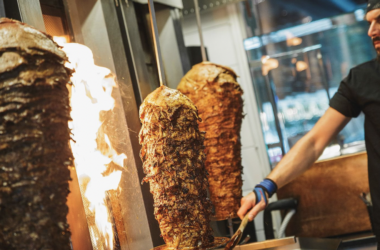Czech consumers are becoming more mindful of their grocery spending, shifting towards smaller, more frequent purchases at local stores while prioritizing convenience and cost-saving strategies. Many now prefer shopping online or at nearby stores to balance affordability and accessibility.
“One of the main trends we observe in Czech shopping behavior is rationalization. Consumers increasingly buy items on promotion while simultaneously reducing the quantity of their purchases and overall consumption,” says Zdeněk Skála from the research company Skála a Šulc. In short, people are thinking more about what they spend their money on and why.
“Nearly 30% of people have cut back on purchases, mainly sweets and snacks, to save money,” says Lenka Švaídová from the Faculty of Economics at the Technical University of Ostrava.
Online grocery shopping is also on the rise. “After several years of testing, online supermarkets are becoming a primary shopping destination for a significant portion of households,” Skála adds. This shift highlights changing consumer priorities.
“On the one hand, small, convenient purchases at easily accessible stores are becoming more frequent. On the other hand, major shopping trips are becoming more rationalized. Consumers want to stay in control, buy only what they truly need, and monitor prices,” Skála explains. This is why online supermarkets are gaining popularity.
Two years ago, large shopping trips increased significantly, and today, online purchases over 1,200 CZK account for around 80% of all orders.
Meanwhile, hypermarkets have experienced a 2% decline in sales, with smaller stores seeing an even steeper drop of 4% last year, according to Karel Tyra from the research agency Nielsen IQ.
Despite frequent visits to small stores, Czechs spend the least there. “If the average spend in a small store is 208 CZK, in a supermarket it’s 384 CZK, in a hypermarket 630 CZK, and in online supermarkets—gaining momentum but still used by fewer people—it’s 769 CZK,” Skála adds. While people are making fewer large purchases, their overall value is increasing.
“According to studies conducted by our faculty, food is the only category where convenience, rather than price, is the main factor driving online purchases,” says Václav Střitecký, vice dean of the Faculty of Business and Economics at the University of Economics.




